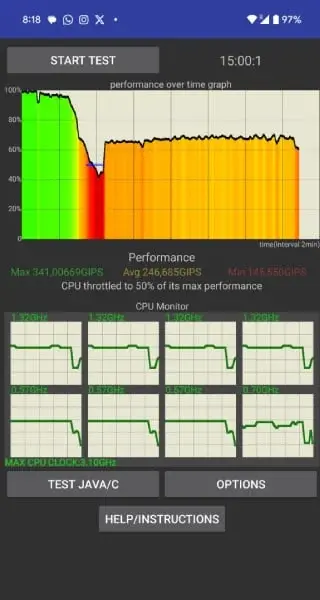Key Takeaways
1. User Dissatisfaction: A Reddit user expressed deep frustration with the MSI Thin 15, calling it the “worst decision” and feeling ridiculed by friends.
2. Performance Issues: The laptop experiences significant thermal throttling, with temperatures reaching the 90s, limiting its performance despite having decent specifications like the Intel Core i5-12450H and Nvidia RTX 3050.
3. Community Feedback: Many users echoed the original poster’s concerns, highlighting issues like inconsistent performance and weak chassis durability, particularly due to the single fan cooling system.
4. Historical Problems: MSI has faced criticism before for thermal issues in its budget gaming laptops, with previous models like the GF63 Thin exhibiting similar performance compromises.
5. Mixed Reviews: While some defended the Thin 15 as a decent budget option with suggestions for improvement, reviews indicated it is better suited for casual use rather than high-performance gaming.
A Reddit user named u/Ok_Mortgage_8452 has sparked quite a conversation in the r/GamingLaptops community after they shared their strong dissatisfaction with the MSI Thin 15. Known for giving solid laptop advice, the user confessed that selecting the Thin 15 was “the worst decision I’ve made,” stating that they’ve become the “laughing stock” among their friends.
Model and Specifications
While the specific model isn’t mentioned, the details shared suggest that the user likely has the MSI Thin 15 B12UC-1439 or something similar. They confirmed using a laptop equipped with an Intel Core i5-12450H processor and an Nvidia GeForce RTX 3050 graphics card. They remarked: “Temps are in the 90s and stays above 88 during boost mode. But it throttles. I tried turning off the boost, but the i5’s base clock is 2 GHz.”
Community Reactions
The post sparked a flurry of replies, with many users expressing similar frustrations. Issues discussed included thermal throttling, inconsistent performance, and weak chassis durability. A number of users pointed out that the RTX 3050 in this model operates with a limited 45W TGP, using a single fan for cooling, which can lead to performance issues during gaming or creative tasks.
Previous Issues with MSI
This isn’t the first time MSI’s budget gaming laptops have been criticized for thermal issues. An earlier post on Reddit noted that the GF63 Thin started throttling after just 15-20 minutes of gaming, leading the user to adjust power settings to stabilize performance.
Similarities Between Models
Although the GF63 Thin belongs to an older generation, it shares characteristics with the newer Thin 15, such as lightweight design, single-fan cooling, and low-wattage GPUs like the RTX 3050. While they aren’t exactly the same, both models are aimed at budget-conscious consumers and seem to exhibit comparable thermal and performance compromises.
Defenses and Workarounds
In spite of the negative feedback, some users defended the Thin 15 as a reasonable budget option. Suggestions for improvement included undervolting, repasting thermal paste, and utilizing laptop cooling pads. Others pointed out the lightweight design as a notable advantage in this price range.
Reviews and Performance
Reviews from websites like Tech Critter and Laptop Media reflect these mixed opinions. The chassis is described as having moderate rigidity, with aluminum on the lid and upper base giving it a somewhat more premium feel than expected at this price point. During tests, keyboard temperatures and fan noise were reported to be within acceptable limits, indicating decent thermal and acoustic performance for everyday tasks.
The RTX 3050 GPU maintained a consistent 45W power draw during extended gaming, suggesting reliable performance within the laptop’s thermal limits. However, as highlighted in the reviews, this system is not designed for high-performance use and is better suited for casual tasks and light to moderate gaming instead of prolonged, intensive sessions.
Conclusion
The thread concludes with the user pondering about the discrepancy between their expectations and reality. Some responses offered solutions, while others shared their own disappointments. Posts like these may not offer definitive conclusions but often influence how others make purchasing decisions in the future.
Source:
Link





